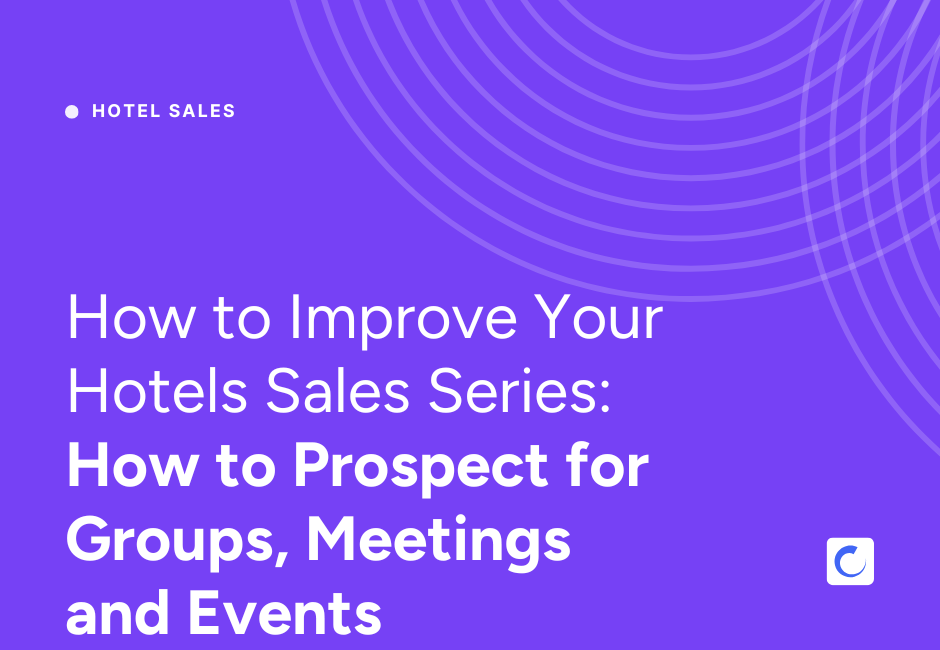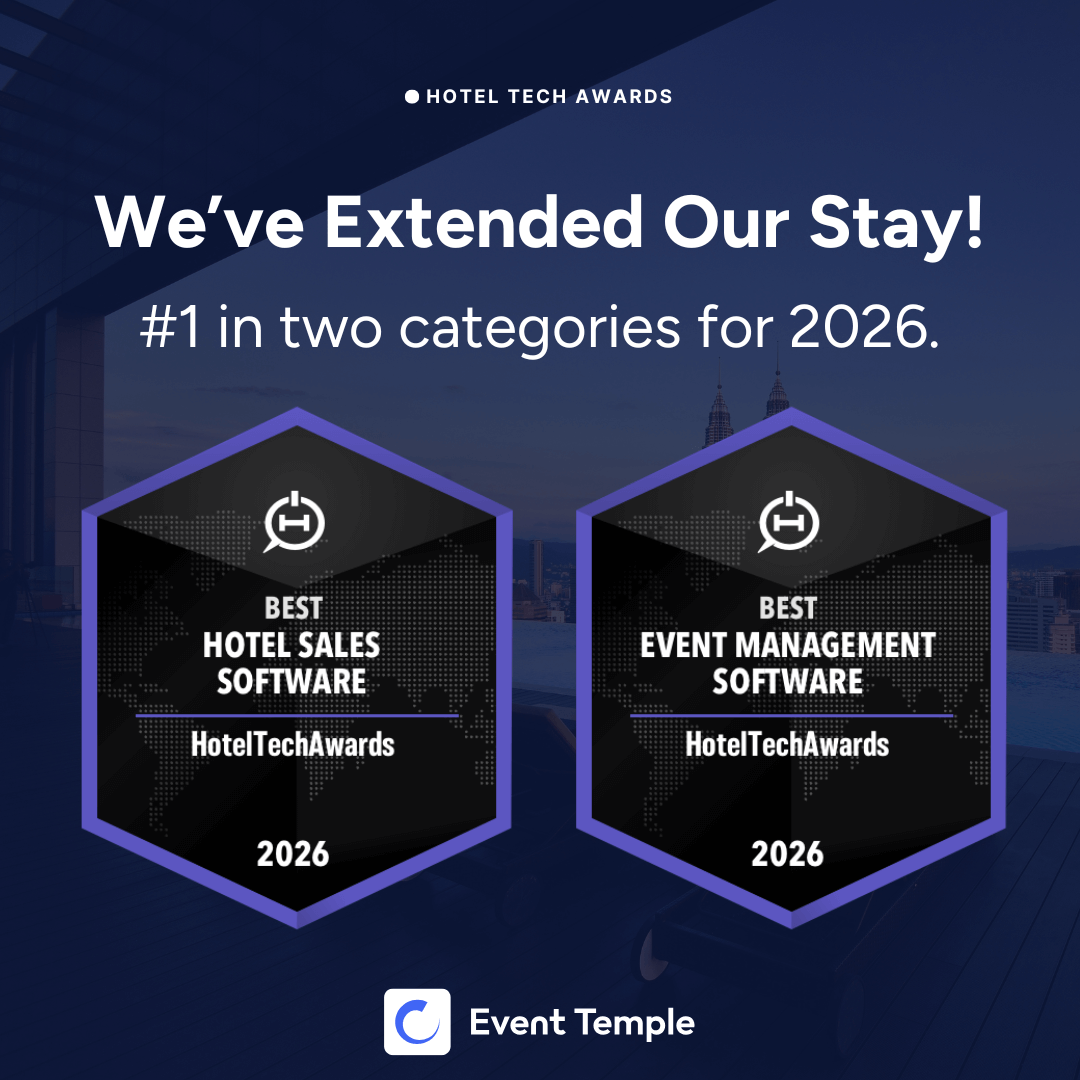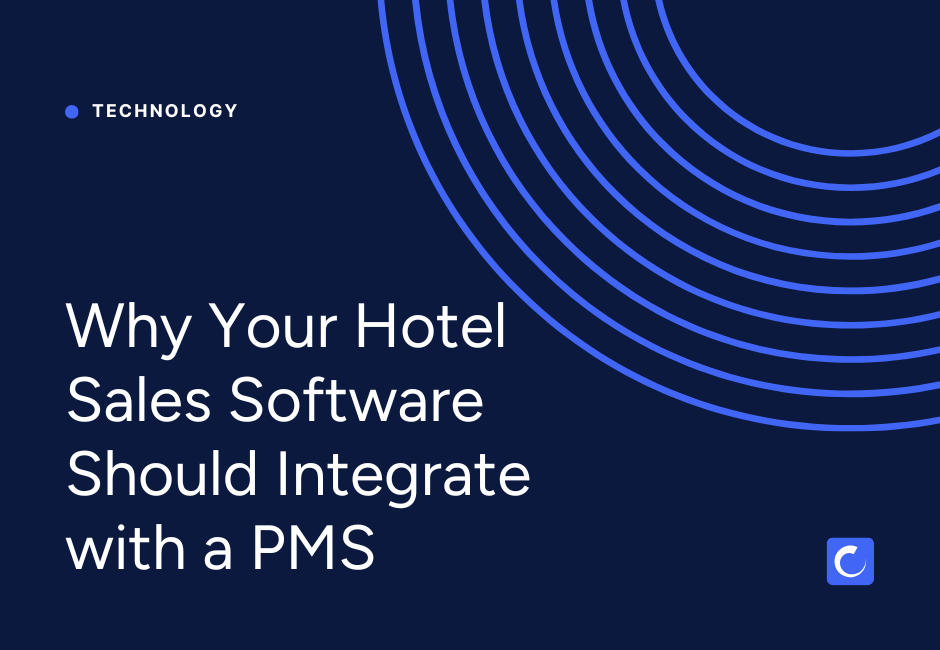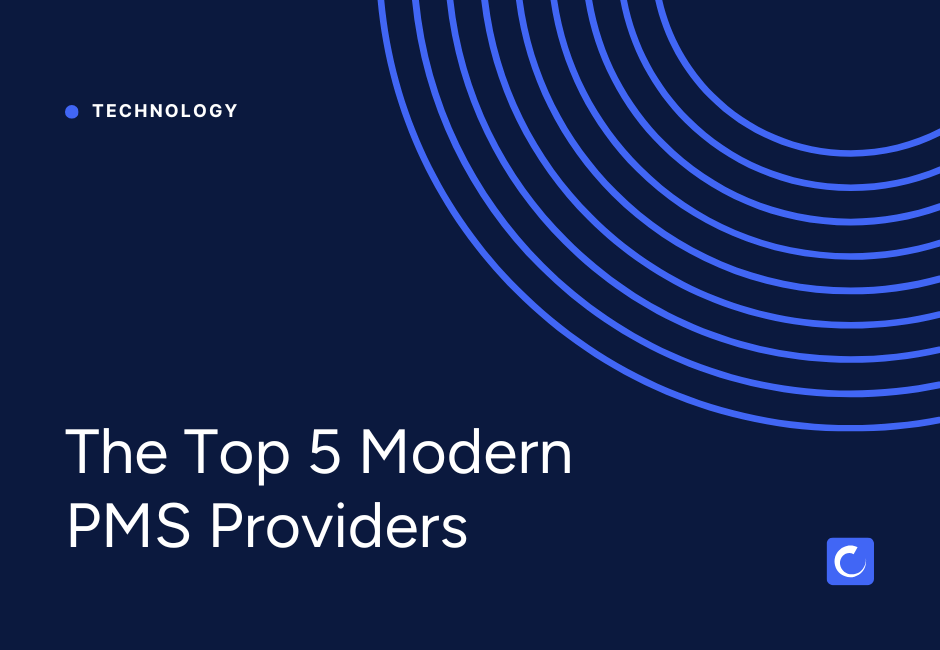
This is the second in our series on How to Improve Your Hotel’s Sales. To be the first to get Part 3, sign up here
In today's competitive hospitality landscape, waiting for RFPs to land in your inbox isn't a strategy—it's a recipe for empty meeting rooms and missed revenue targets. Successful hotel sales professionals know that proactive prospecting is the difference between hitting your REVPAR goals and watching competitors steal your market share.
Whether you're a Director of Sales managing multiple properties or an on-property sales manager fighting for every group booking, this guide will transform how you identify, reach, and convert high-value group business for your hotel.
Why Strategic Prospecting Matters More Than Ever
The hotel industry has fundamentally changed. Corporate travel patterns have shifted, hybrid events have become the norm, and decision-makers are harder to reach than ever before. Yet, groups, meetings, and events remain the backbone of hotel profitability, often driving 40-60% of total revenue for full-service properties.
Here's the reality: successful prospecting for hotel sales isn't about volume—it's about precision. The most effective hotel lead generation managers know exactly where their ideal customers gather and how to reach them at the right moment. They understand that building relationships before selling is what separates top performers from those struggling to fill their banquet spaces.
Step 1: Define Your Ideal Customer Profile (ICP)
Before you spend a single minute prospecting, you need crystal clarity on who you're targeting. Not every group is right for your property, and chasing the wrong business wastes precious time and resources.
Start by analyzing your most profitable past events. Look for patterns in:
- Industry verticals that consistently book with you
- Group sizes that maximize your space utilization
- Lead times that align with your booking windows
- Budget ranges that meet your ADR targets
- Geographic origins of your best clients
Use this data to create detailed ICPs for different segments. A boutique hotel downtown might target tech company offsites and intimate board meetings, while a resort property might focus on association conferences and incentive trips. Define your hotel's unique value proposition and match it to the customers who will value it most.
Step 2: Diversify Your Prospecting Channels
The days of relying solely on cold calls and trade shows are over. Today's hotel sales and marketing demands a multi-channel approach that meets prospects where they already are.
Industry Associations: Your Hidden Goldmine
Industry associations remain untapped goldmines for group business. Every association—from the American Medical Association to local chapters of manufacturing groups—hosts regular events. Here's how to mine this opportunity:
- Join local chambers of commerce and professional organizations as an affiliate member
- Attend their networking events not to sell, but to build genuine relationships
- Offer to host smaller committee meetings for free to showcase your space
- Partner with associations to become their preferred venue provider
LinkedIn: Your Digital Prospecting Powerhouse
LinkedIn has revolutionized hotel lead generation, allowing you to identify and connect with decision-makers directly. But success requires strategy:
Set up Boolean searches and alerts for phrases like:
- "planning our annual conference"
- "looking for venue recommendations in [your city]"
- "organizing our company retreat"
- "need event space for"
When you identify prospects, don't immediately pitch. Instead, engage with their content, share valuable insights about event planning in your city, and build credibility before making your move.
Technology-Driven Lead Identification
Modern hotel lead generation managers leverage technology to identify buying signals before competitors. Tools like Clay or Apollo can help you track:
- Companies announcing expansion plans (they'll need training spaces)
- Organizations receiving new funding (celebration events and strategic planning sessions)
- Leadership changes (new executives often reorganize and host alignment meetings)
- Merger and acquisition activity (integration meetings and team-building events)
Step 3: Master the Art of Relationship-First Outreach
Here's where most hotel sales professionals fail: they lead with features and pricing instead of value and relationship. Your first contact should never be about selling—it should be about serving.
The Three-Touch Warm-Up Strategy
Touch 1: The Value-Add Introduction Send a LinkedIn connection request with a personalized note mentioning something specific about their company or recent achievement. No selling.
Touch 2: The Insight Share Share an article or resource relevant to their industry. For example, if they're in healthcare, send them insights about successful medical conference trends. Add a brief note: "Saw your team is growing—thought this might be helpful for planning your next team meeting."
Touch 3: The Soft Inquiry Only after providing value twice, make your soft pitch: "I noticed you're based in [city]. If you ever need recommendations for meeting spaces, I'm happy to share some insider tips—even if it's not our property."
Crafting Outreach That Converts
Whether using email, LinkedIn, or phone, your outreach must be:
Personalized: Reference specific details about their company, recent news, or mutual connections
Value-focused: Lead with what's in it for them, not your hotel's features
Brief: Respect their time—keep initial messages under 100 words
Action-oriented: Include one clear call-to-action, whether it's a quick call or coffee meeting
Step 4: Leverage Local Events and Partnerships
Your local market is full of prospecting opportunities hiding in plain sight.
Become the Local Expert
Position yourself as the go-to resource for event planning in your market:
- Write for local business publications about event trends
- Host educational workshops for administrative professionals
- Create city guides for out-of-town planners
- Partner with DMOs (Destination Marketing Organizations) to be featured in planner resources
Strategic Partnership Development
Build partnerships that create a steady stream of qualified leads:
- Connect with corporate travel managers who book individual travel but influence group decisions
- Partner with local event planners who often need venue recommendations
- Collaborate with AV companies, caterers, and transportation providers for mutual referrals
- Join your local Convention and Visitors Bureau to access leads and RFPs
Step 5: Create a Systematic Follow-Up Process
Prospecting without follow-up is like filling a bucket with holes. Research shows it takes an average of 8 touches to convert a cold prospect into a meeting, yet most salespeople give up after 2.
The 8-Touch Framework
- Initial outreach (LinkedIn or email)
- Follow-up with additional value (3 days later)
- Phone call attempt (1 week later)
- Share relevant content (2 weeks later)
- Invite to property for non-sales event (3 weeks later)
- Check-in with industry update (1 month later)
- Soft pitch with specific value proposition (6 weeks later)
- Final follow-up with different angle (2 months later)
Tracking and Optimization
Use a hotel RFP solution or CRM to track:
- Response rates by channel and message type
- Conversion rates from prospect to tour to booking
- Time from first touch to closed business
- Revenue per prospecting hour invested
Advanced Prospecting Strategies for Competitive Markets
The Account-Based Approach
Instead of casting a wide net, identify 20-30 dream accounts and create personalized campaigns for each. Research their event history, understand their challenges, and create custom solutions before you even speak.
The Referral Multiplication System
Your best prospects come from your best clients. Implement a systematic referral program:
- Ask satisfied clients for introductions at the end of successful events
- Offer incentives for referrals that turn into bookings
- Create a client advisory board that naturally generates referrals
- Host client appreciation events where they can bring colleagues
Digital Footprint Monitoring
Set up Google Alerts and social media monitoring for:
- Your target companies + "event" or "meeting"
- Competitors' properties to identify their clients
- Industry conference hashtags to find planners
- Local business expansion announcements
Measuring Success: KPIs That Matter
Track these metrics to ensure your prospecting drives real results:
- Pipeline Velocity: How quickly prospects move from first touch to booking
- Prospecting ROI: Revenue generated per hour spent prospecting
- Source Attribution: Which channels generate the highest-value bookings
- Conversion Rates: Percentage of prospects that become tours, proposals, and bookings
- Account Penetration: Number of events per account annually
Putting It All Together: Your 30-Day Prospecting Plan
Week 1: Define your ICP and identify 50 target accounts Week 2: Set up your technology stack and LinkedIn presence Week 3: Launch outreach campaigns across three channels Week 4: Attend two local networking events and schedule five prospect meetings
Remember, successful hotel online lead management isn't about working harder—it's about working smarter. By combining strategic targeting, multi-channel outreach, and relationship-first selling, you'll build a pipeline that consistently delivers high-value group business.
Transform Your Prospecting with the Right Tools
While manual prospecting can work, scaling your efforts requires the right technology. Modern hotel sales lead generation demands a systematic approach to tracking prospects, managing follow-ups, and measuring results.
The most successful hotel sales teams use integrated platforms that connect prospecting activities directly to booking outcomes, ensuring no opportunity falls through the cracks. When you combine strategic prospecting with powerful sales tools, you don't just fill your event spaces—you fill them with the right business at the right rates.
Ready to revolutionize your hotel's group sales performance? Start with one ICP, one channel, and one week of consistent effort. The results will speak for themselves.



